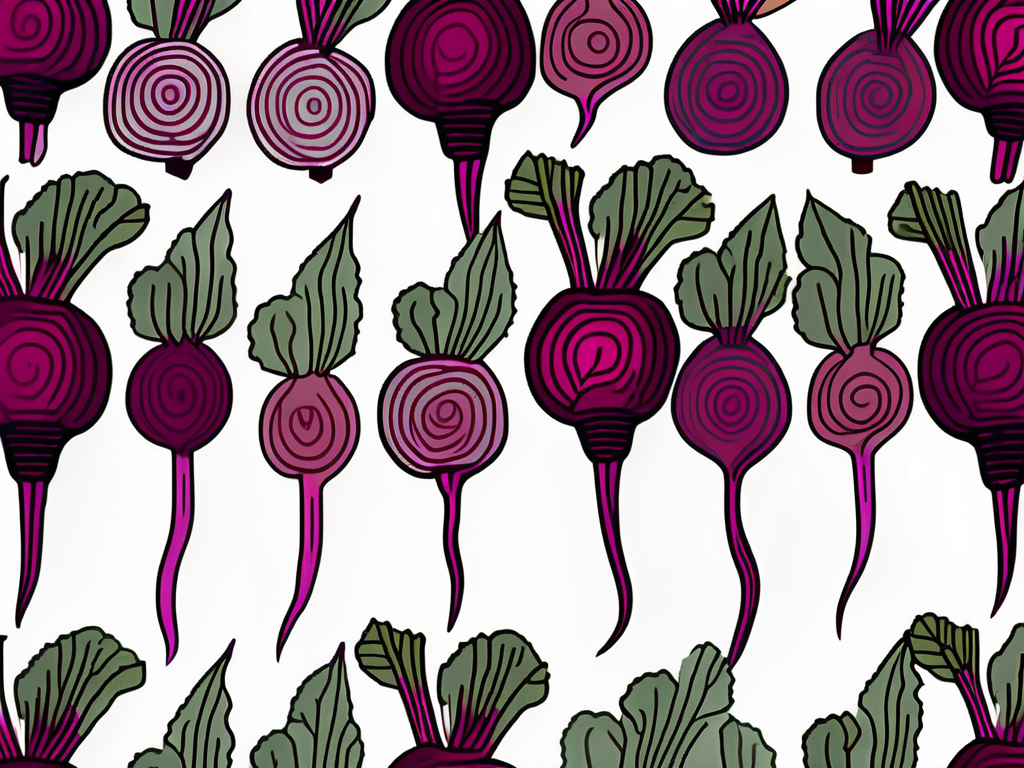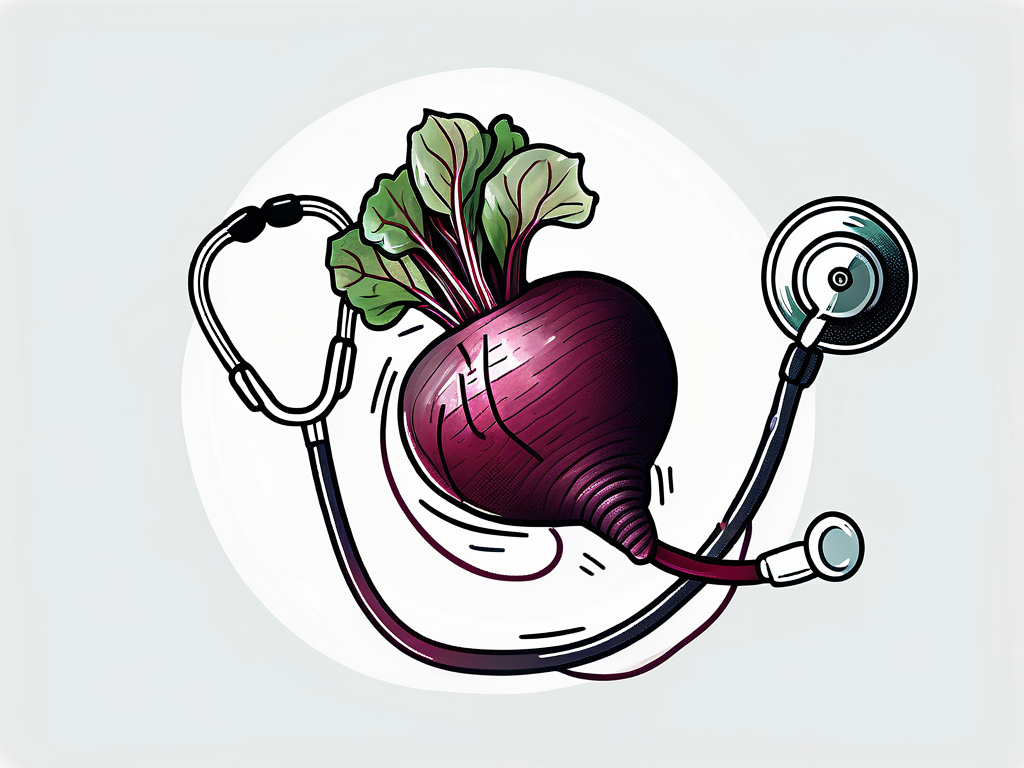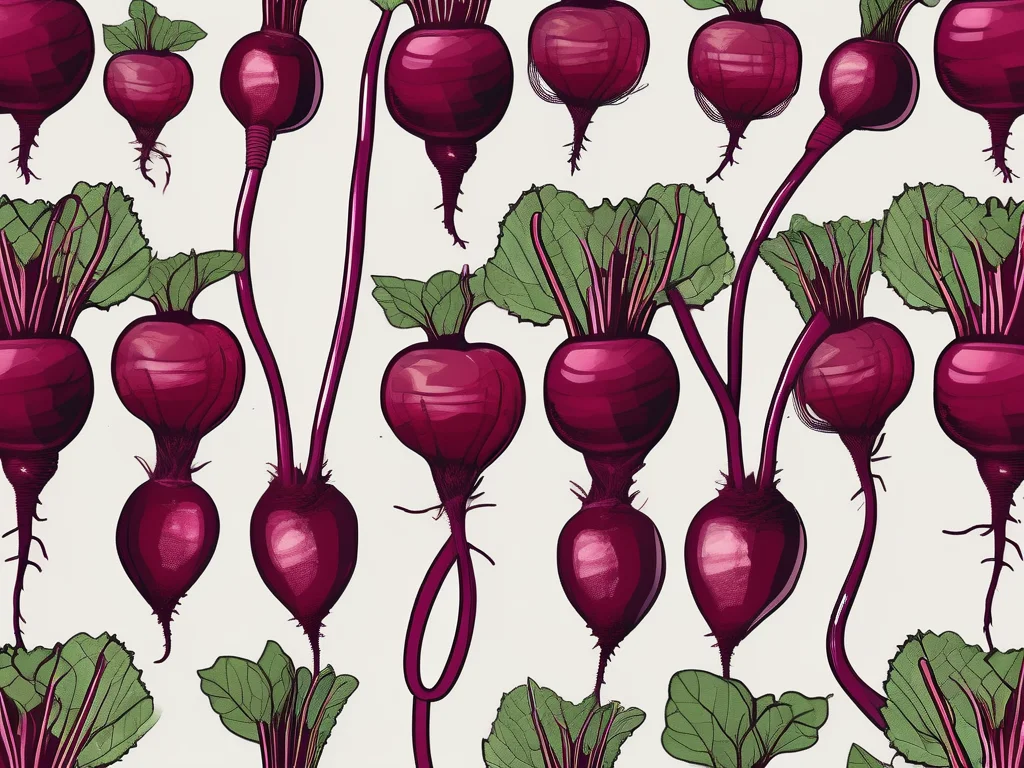cDiabetes is a chronic condition that affects the body’s ability to regulate blood sugar levels. The body either produces insufficient insulin or fails to effectively use insulin, resulting in high blood sugar levels for this disease. With the increasing prevalence of diabetes worldwide, there is a growing interest in finding natural remedies to help manage this condition. One such remedy that has gained attention is beetroot. In this article, I will examine the benefits of beetroot for people with diabetes and provide effective ways to incorporate it into a diabetic diet.
Understanding Diabetes: A Brief Overview
Understand diabetes before exploring how beetroot can benefit it. Diabetes is a metabolic disorder that affects the way our body utilizes glucose, the primary source of energy. There are three main types of diabetes: type 1, type 2, and gestational diabetes. Type 1 diabetes occurs when the body’s immune system mistakenly destroys the insulin-producing cells in the pancreas. The body’s cells become less responsive to insulin in Type 2 diabetes, resulting in insulin resistance. Gestational diabetes occurs during pregnancy and usually resolves after childbirth.
It is crucial for individuals with diabetes to carefully manage their condition through a combination of medication, diet, exercise, and regular monitoring of blood sugar levels. People with type 1 diabetes typically need to inject insulin daily to regulate their blood sugar levels, while people with type 2 diabetes may manage their condition through oral medications, lifestyle modifications, and sometimes insulin therapy. Gestational diabetes management focuses on controlling blood sugar levels to ensure the health of both the mother and the baby.
Furthermore, diabetes is a chronic condition that can lead to various complications if left uncontrolled. These complications include cardiovascular disease, nerve damage, kidney failure, vision problems, and slow wound healing. Early diagnosis, treatment, support are key in managing diabetes complications.
The Nutritional Profile of Beetroot
Beetroot, also known as beets, is a root vegetable that is rich in essential nutrients. It is a good source of vitamins and minerals, including folate, vitamin C, potassium, and manganese. Additionally, beetroot contains dietary fiber and antioxidants, which contribute to its potential health benefits.

Beetroot’s red color comes from betalains, potent antioxidants that reduce inflammation. Compounds linked to lower risk of chronic diseases, such as heart disease and certain types of cancer, are these. These compounds lower the risk of chronic diseases, including heart disease and certain types of cancer. Including beetroot in your diet can help boost your antioxidant intake and support overall health.
Essential Nutrients in Beetroot
Vitamin C, also known as ascorbic acid, plays a crucial role in supporting the immune system and promoting wound healing. Folate, on the other hand, is essential for cell division and DNA synthesis. Potassium regulates blood pressure; manganese aids bone development and healing. These nutrients are vital for overall health and can contribute to the management of diabetes.
In addition to the nutrients mentioned, beetroot also contains nitrates, which have been shown to have beneficial effects on cardiovascular health. Nitrates help dilate blood vessels, improving blood flow and lowering blood pressure. Including beetroot or beetroot juice in your diet may help support heart health and reduce the risk of cardiovascular diseases.
Caloric Content of Beetroot
One of the concerns for individuals with diabetes is the impact of certain foods on blood sugar levels. Fortunately, beetroot is relatively low in calories. Cooked beetroot cup has 60 calories, ideal for calorie watchers.
You can enjoy beetroot in various ways, such as in raw salads, roasted as a side dish, or blended into smoothies. Its natural sweetness adds a unique flavor profile to dishes and makes it a popular ingredient in both savory and sweet recipes. Experimenting with different cooking methods can help you discover new ways to incorporate this nutritious vegetable into your diet.
Beetroot and Blood Sugar Control
Now let’s explore how beetroot may positively affect blood sugar control in individuals with diabetes.
Beetroot gaining attention for health benefits, especially blood sugar management. Beetroot offers numerous benefits besides taste and vibrant color.
How Beetroot Affects Insulin Sensitivity
Insulin sensitivity refers to the body’s response to insulin, the hormone responsible for regulating blood sugar levels. Research suggests that beetroot may improve insulin sensitivity, potentially helping individuals with diabetes better manage their blood sugar levels. More studies are needed to confirm the findings and determine the extent to which beetroot impacts insulin sensitivity.
Furthermore, beetroot is known to contain nitrates, which have been linked to enhanced exercise performance and cardiovascular health. The body converts these nitrates into nitric oxide, leading to improved blood flow and potentially aiding in insulin sensitivity. Beetroot offers many benefits for a healthy, well-rounded diet.
Beetroot’s Impact on Blood Glucose Levels
Some studies have shown that beetroot may help regulate blood glucose levels. This may be attributed to its high fiber content, which slows down the absorption of glucose into the bloodstream. Additionally, beetroot contains natural sugars, including sucrose and fructose, which are metabolized differently than refined sugars. These factors may contribute to the blood sugar benefits associated with beetroot consumption. Nonetheless, it is important to note that individual responses to beetroot can vary, and consulting a healthcare professional is advisable before making any significant dietary changes.
Other Health Benefits of Beetroot
Aside from its potential impact on blood sugar control, beetroot offers a range of other health benefits.

Beetroot and Heart Health
Beetroot is rich in nitrates, compounds that have been shown to have vasodilatory effects. This means that they can help relax and widen blood vessels, potentially leading to improved blood flow and reduced blood pressure. Additionally, the antioxidants found in beetroot can help reduce inflammation and oxidative stress, both of which are risk factors for heart disease. By incorporating beetroot into their diet, individuals with diabetes can potentially support their cardiovascular health.
Beetroot’s Role in Digestive Health
The dietary fiber in beetroot promotes regular bowel movements and helps maintain a healthy digestive system. Adequate fiber intake can prevent constipation and promote a healthy gut microbiome, which plays a crucial role in overall health. By incorporating beetroot, individuals with diabetes can contribute to their digestive wellness, an often overlooked aspect of diabetes management.
Enhancing Athletic Performance with Beetroot
Research has shown that beetroot juice can improve athletic performance due to its nitrate content. Nitrates are converted into nitric oxide in the body, which can enhance oxygen utilization, improve exercise efficiency, and increase stamina. Athletes, including runners and cyclists, have incorporated beetroot juice into their pre-workout routine to potentially boost their endurance and overall performance.
Beetroot and Skin Health
The vitamins and minerals in beetroot, such as vitamin C and manganese, contribute to healthy skin by promoting collagen production and protecting against oxidative damage. Collagen is essential for skin elasticity and firmness, while antioxidants help combat free radicals that can accelerate skin aging. Including beetroot in the diet can support skin health from within, offering a natural way to maintain a youthful and radiant complexion.
Now that we’ve explored the potential benefits of beetroot for diabetes—such as its rich antioxidant content, anti-inflammatory properties, and ability to support heart and vascular health—it’s time to discover practical and delicious ways to include this vibrant root vegetable in your daily meals.
Despite its natural sweetness, beetroot has a moderate glycemic index (GI) and, when consumed in appropriate portions, can be a nutritious addition to a diabetes-friendly diet. Its high fiber content helps slow down sugar absorption, supporting more stable blood glucose levels.
1. Roasted Beetroot in Salads
One of the easiest and tastiest ways to enjoy beetroot is by roasting it and adding it to salads. Roasting enhances its natural sweetness while preserving its nutrients. Pair roasted beets with leafy greens, cucumbers, feta (in moderation), and a light vinaigrette made with olive oil and lemon juice for a balanced, fiber-rich meal that supports blood sugar control.
Tip: Stick to a serving size of about ½ cup (75–100g) of cooked beets to manage carbohydrate intake effectively.
2. Beetroot Smoothies
Boost your morning routine with a diabetic-friendly beetroot smoothie. Blend a small chunk of raw or cooked beetroot with low-sugar fruits like berries, green leafy vegetables (such as spinach), unsweetened almond milk, and a source of protein like Greek yogurt or chia seeds. This combination helps balance the natural sugars in beetroot and provides sustained energy.
Example Recipe:
- ¼ cup chopped beetroot
- ½ cup mixed berries
- Handful of spinach
- ½ cup unsweetened almond milk
- 1 tbsp chia seeds or a scoop of protein powder
- Ice and blend
3. Grated Beetroot in Savory Dishes
Add raw or lightly sautéed grated beetroot to dishes like:
- Veggie burgers or patties – Mix with lentils, oats, and spices for a nutrient-dense, colorful patty.
- Rice or quinoa bowls – Adds color, texture, and a mild sweetness.
- Slaws and side salads – Combine with cabbage, carrots, and a vinegar-based dressing for a refreshing accompaniment.
This not only enhances flavor and visual appeal but also increases fiber and antioxidant intake.
4. Beetroot in Soups and Stews
Beetroot is a star ingredient in traditional soups like borscht, but you can also add it to any hearty vegetable soup or lentil stew. Its earthy flavor blends well with spices like cumin, garlic, and turmeric—many of which also offer anti-diabetic properties. Cooking beets in soups helps retain nutrients while making them easier to digest.
Tip: Use low-sodium vegetable broth and avoid adding extra sugar to keep the dish diabetes-friendly.
5. Pickled or Fermented Beetroot
Pickled beets (without added sugar) can be a tangy, probiotic-rich addition to meals. Fermented beetroot, in particular, supports gut health, which is increasingly linked to improved glucose metabolism. Look for sugar-free versions or make your own at home using vinegar, water, spices, and a natural low-GI sweetener like stevia if needed.
Precautions When Consuming Beetroot
While beetroot offers numerous health benefits, people with diabetes should keep the following in mind:
-
Practice Portion Control
Although nutritious, beetroot contains natural sugars. Overconsumption may lead to blood sugar spikes. Stick to small to moderate servings (½ cup cooked or 1 small beet) and monitor your glucose response. -
Monitor for Oxalate Sensitivity
Beetroot is high in oxalates, which may contribute to kidney stone formation in susceptible individuals. If you have a history of calcium-oxalate kidney stones, consult your doctor or dietitian before increasing beetroot intake. -
Watch for Medication Interactions
Beetroot is rich in nitrates, which can lower blood pressure. If you’re on antihypertensive medications, be mindful of combining large amounts of beet juice with your treatment, as it may cause blood pressure to drop too low. -
Be Aware of “Beeturia”
Some people notice pink or red urine or stool after eating beets—this harmless condition, called beeturia, is due to betalain pigments and is not a cause for concern. -
Avoid Commercial Beet Juices with Added Sugar
Store-bought beet juices often contain added sugars or are blended with high-GI fruits. Opt for homemade beet juice in small amounts (e.g., ¼ cup mixed with carrot, cucumber, or lemon) and always pair it with fiber or protein to blunt glucose response.



